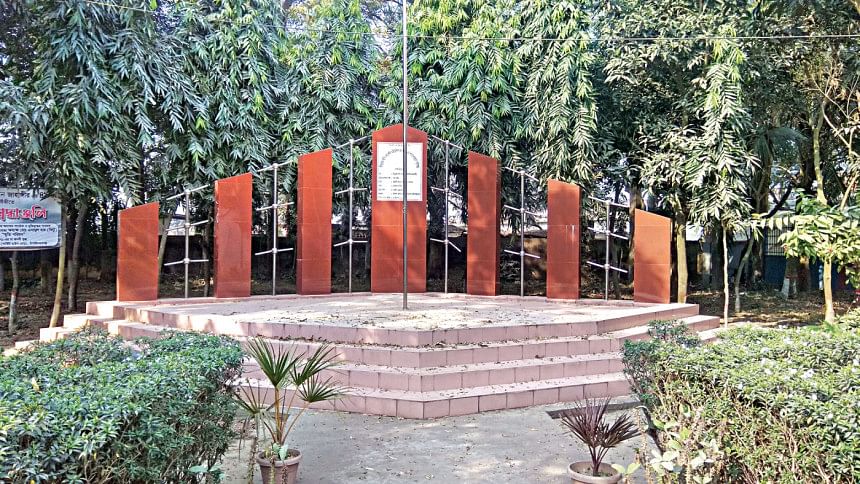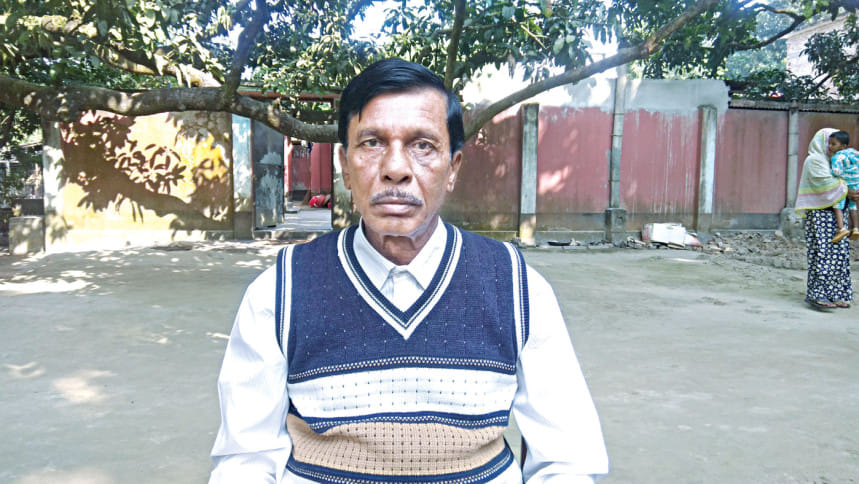Captain Jahangir, through my eyes

Bir Shreshtha Captain Mohiuddin Jahangir sacrificed his life for the freedom of his motherland.
On December 14, 1971, just two days before victory arrived, he led a group of Mukti Bahini fighters of Sector-7 and launched an attack on Chapainawabganj town from Rehaichar area, beside Mahananda river.
That battle was unique, in that it was conducted entirely by civilians, said Bazlur Rashid Sonu, who took part in the battle.
Fifty years on, he retold the story to The Daily Star.
"When I joined the Liberation War in April 1971, I was still only a 10th-grader."

"After it was decided that I was going to get trained to join the war, I made it to West Bengal's Maldah town through the Telkupi border from my native Kalupur village in Chapainawabganj's Shibganj upazila."
"After spending a month at a training camp in Shiliguri, I was sent to Dinajpur's Balurghat in May, from where I was sent to Mohodipur camp. This is where I met Mohiuddin Jahangir for the first time."
As a fighter and commander, he was very disciplined, loyal and committed to liberate the country. He always wore his signature three-piece -- a lungi, genji and gamchha -- and lived with his fellows at the camp. He was a guerilla fighter through and through.
"One day, Captain Jahangir asked around for people who would accompany him to Chapainawabganj town to free it. I decided to join the team."
On December 10, 1971, under Captain Jahangir's leadership, Mukti Bahini fighters of Sector-7, along with 150 civilian freedom fighters, arrived at the temporary camp at Laxmipur Primary school in Chapainawabganj Sadar upazila's Barighoria area.
"As dawn broke on December 14, around 50 of us crossed Mahananda river through Akondobaria ghat by boat and took position near Rehaichar area in Chapainawabganj town. The rest of the troop stayed back in Barighoria and took position for defence."

After crossing Mahananda, two separate groups attacked the Pakistani army's bunkers and destroyed 17 of them. Tragically, during the skirmish, Captain Jahangir caught a bullet on his left eye and died on the spot. Though the battle was eventually won, Jahangir could not be there to see it.
"After hearing of his passing, those of us who survived the battle carried his body back to Barighoria camp, from where it was taken to Shibganj."
He was buried near the grave of another valiant freedom fighter, Maj Najmul Haque, on the premises of Sona Masjid, in presence of sector-7 Commander Lt Col Kazi Nuruzzaman.
Every year, Muktijoddha Sangsad, local administration and various socio-cultural and political organisations pay tribute to him by visiting the spot on the day.
Mohiuddin Jahangir was born on March 6, 1945 at Rahimganj village in Barishal's Babuganj upazila. On October 5, 1967, he joined the armed forces as a cadet at the Pakistan Military Academy. After successfully completing his training with the 15th war course, Jahangir was commissioned in the Corps of Engineers.
In 1971, Jahangir was working at a construction field at the then West-Pakistan's Karakoram. Late June, he managed to cross the border and join the Liberation War at Mehdipur in West Bengal's Maldah district.
On July 3, he became a captain of Sector-7.
Jahangir was posthumously conferred with Bir Shreshtha, the highest gallantry award, for his bravery.

 For all latest news, follow The Daily Star's Google News channel.
For all latest news, follow The Daily Star's Google News channel. 



Comments